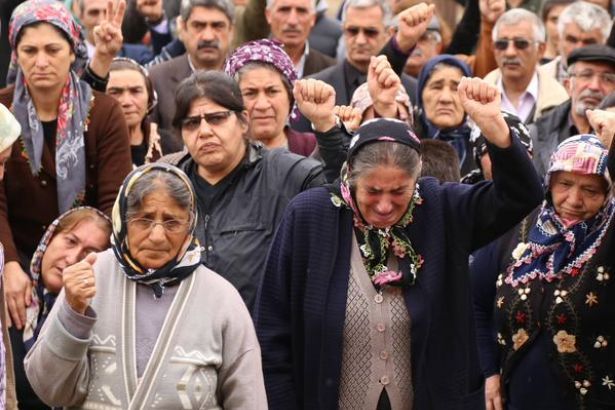Trial of Islamic State suspects shows Turkish government connivance before bombings

Now on trial for involvement in Turkey's deadliest suicide bombing, an attack last year that killed more than 100 people in Ankara, his testimony has highlighted connivance in border security and intelligence which lawyers say has allowed parts of Turkey to become a rear base for jihadists.
President Tayyip Erdoğan portrays Turkey as a barrier to Islamic State reaching Europe from Syria and Iraq. Dropping its guard, he says, would enable militants to spread a flood of "fire and blood" through the world.
"First I joined the Nusra Front," Durmaz said during the first week of the trial in an Ankara court, referring to what was at the time al Qaeda's affiliate in Syria.
"Then my friends joined Islamic State, and I had sympathy for it, so I joined them," he said. "I attended military training with them, fought with them for a few months, then came back to Gaziantep (near the border with Syria). This happened, back and forth, three or four times (between 2012 and 2014)."
Durmaz, 19, is one of 14 suspected members of Islamic State of Iraq and Syria (ISIS), who have appeared in court over the attack outside Ankara's main train station on Oct. 10, 2015, which killed mainly young left-wing activists at a rally.
A further 22 suspects are on trial but some are still at large and some have spoken via videolink. Some face multiple sentences of up to 11,750 years for murder, membership of a terrorist organisation and seeking to change the constitutional order. Others face up to 22 years in jail for membership of ISIS.
Durmaz denies accusations of being in charge of the border for ISIS and helping plan the suicide bombing, but makes no secret of his trips to Syria.
Asked by the judge whether he had killed anyone there, he said: "We were fighting against the Kurdish militants and (Syrian President) Assad's regime. It wasn't an exchange of roses."
Durmaz's older brother, Yunus Durmaz, is listed in the indictment as a mastermind of the attack, but blew himself up in May during a police raid on an Islamic State safe house which the younger Durmaz brother survived.
GARLIC FARM
The defendants have appeared in court behind a line of riot police in body armour and helmets, with the families and lawyers of the victims at times chanting "murderers" and demanding Erdoğan's ruling Justice and Development Party (AKP) also accept responsibility.
Several defendants told the court that for years it had been easy for militants to come and go from Syria, move around enough fertilizer to make bombs and carry out attacks.
One, Yakub Şahin, said he had bought the fertiliser used in the bombing. He said he believed he was buying the ammonium nitrate so that his boss, Halil İbrahim Durgun, could start a garlic farm. Durgun killed himself in May during the raid on the ISIS safe house in Gaziantep near the Syrian border.
"The first shop I asked was suspicious, and called the police. The police came to my house and talked to my sister, but they didn't ask me anything," Şahin told the court.
He said he was also given the task of escorting the car carrying the bombers. But he said he had believed they were taking a friend who had not done compulsory military service to Ankara and that an escort vehicle was needed to sound the alarm in case there were police checkpoints on the road.
In his testimony to police, before the trial, Şahin said that, like Durmaz, he was initially recruited to join the Nusra Front in Gaziantep, near the border with Syria. He said he was later introduced to Durgun by a childhood friend and soon realised he was working for ISIS.
Turkish prosecutors say an ISIS cell in Gaziantep set up safe houses to accommodate fighters and planned a string of bombings in Turkey.
Turkey has been hit by at least half a dozen suicide attacks blamed on the militant group over the past year, including suicide bombings in İstanbul in January and March which killed German and Israeli tourists, and a gun-and-bomb attack at Istanbul airport which killed 45 people in June.
"Turkey is really like a barrier between terror groups and the rest of the world, notably Europe," Erdoğan told a NATO conference in Istanbul on Monday.
"If we are unsuccessful in this fight, that is if this barrier is destroyed, the terrorists will spread fire and blood across the whole world like a flood," he said.
For the families in the Ankara courthouse, where the next hearing in the trial of the bombing suspects will be next February, such efforts come too late.
"This case is yet another proof that the radical Islamists had a free pass to move around the two sides of the border for years," said a lawyer for one family whose son, a university student, was killed in the attack.



